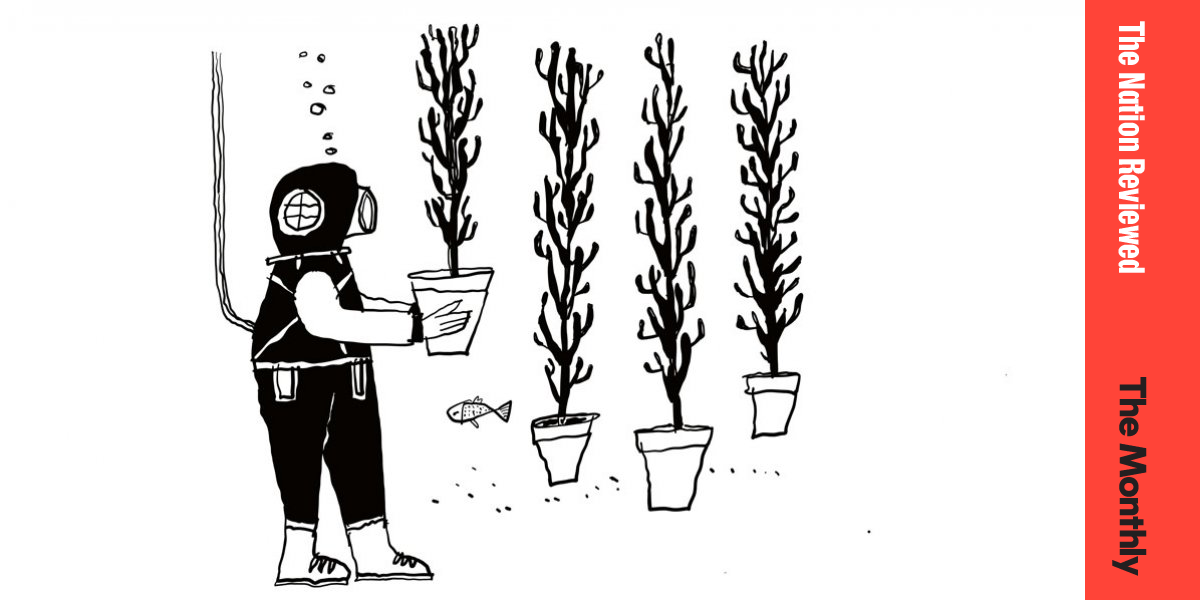Heat-resistant strains of giant kelp are being planted around the Tasman Peninsula in a bid to restore the once great marine forests devastated by climate change.
Baron, who has been diving in these waters for more than 40 years, says the disappearance of the kelp has led to a wider scale collapse of the ecosystem.
With the backing of fashion-designer-turned-climate-entrepreneur Sam Elsom’s Sea Forest Foundation, an initiative that hopes to help tackle the climate crisis by protecting and restoring kelp and seaweed, they began the process of planting giant kelp across more than half a hectare.
The water is surprisingly clear, and cold, and as we descend we pass over beds of golden kelp and crayweed, their honey-coloured leaves shifting in the light from above.
“We’re facing the loss of kelp forests in Australia within a decade or two. That could still happen, even with what we’re trying to do. But if we do nothing, you can guarantee they’ll be gone. So I don’t think we have the luxury of not trying.”



If the welfare system had a living wage that allowed you to redirect into charity, conservation, social work, education, etc, then sure, this complex system can stay. The argument for a UBI (or similar) is that the complex system needs replacement because it wastes money and is not fit for the purpose we need.
Personally, I shortened my working week by choice and took the financial hit, I then redirect that spare time into environmental work. I ask people to jump in and help while I supply everything and they don’t because they aren’t getting paid. They have the time to help but only if they get money. People definitely have the time, there is a perverse incentive to do the right thing. I’m not sure how the welfare system can help with that as it stands.